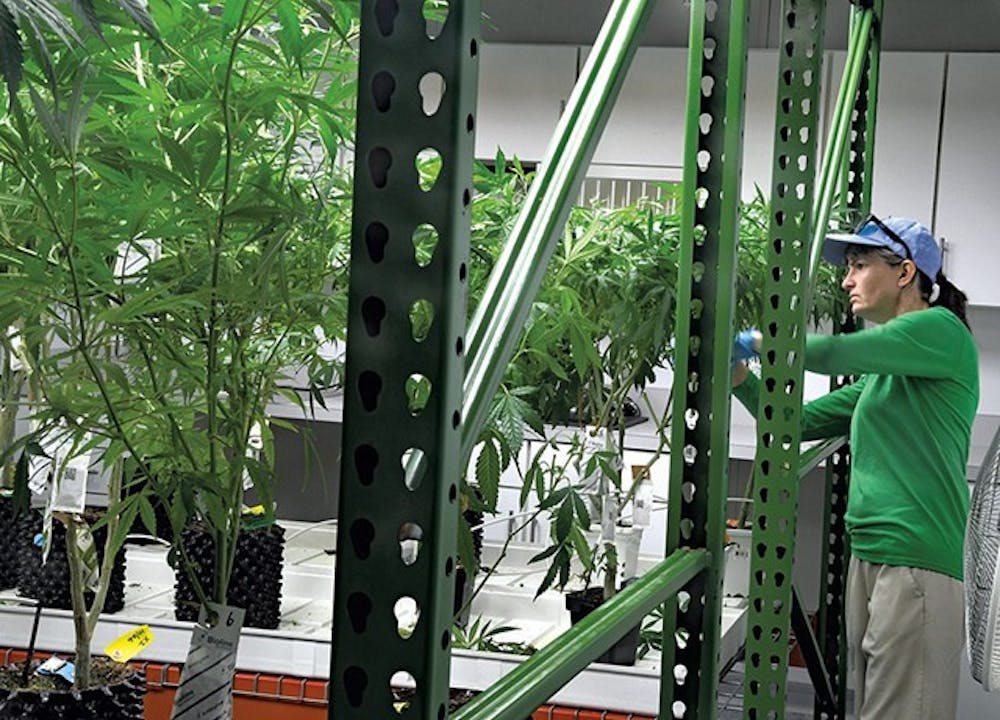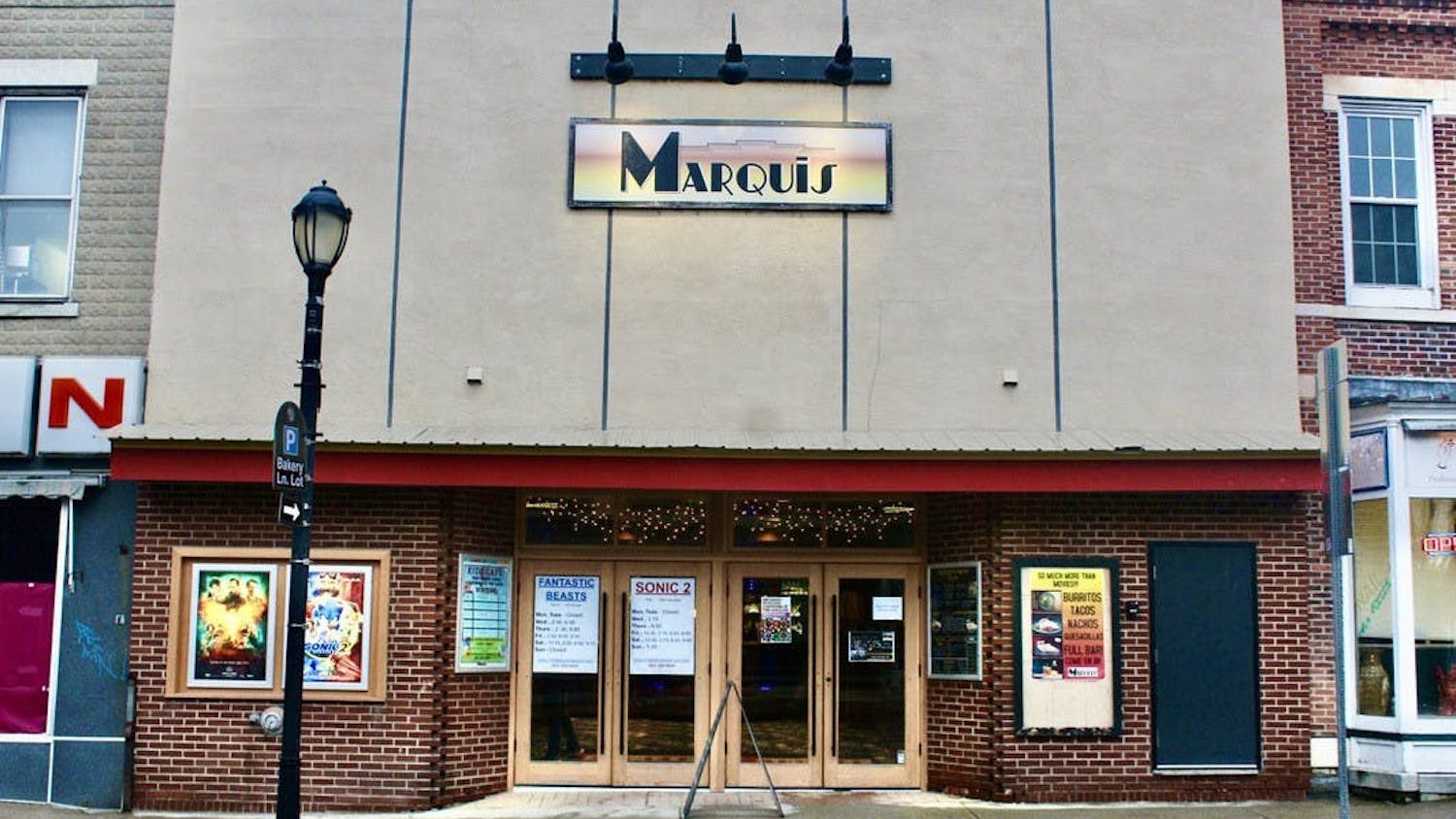On Monday, Nov. 27, the Middlebury Development Review Board (DRB) heard a proposal by Champlain Valley Dispensary (CVD) to establish a medical-marijuana dispensary in Addison County.
Following the passage of Act 65 on Thursday, June 8, 2017, Champlain Valley Dispensary was able to start the search for an additional location. The act made various reforms to the Vermont Marijuana Registry. These changes include the addition of Crohn’s disease, Parkinson’s disease and post-traumatic stress disorder to the list of medical conditions that qualify a patient to be on the registry, as well as the expansion of the number of dispensary licenses available from four to five. Moreover, Act 65 allows a dispensary to serve a patient at two locations under the same license and eliminates the regulation that a dispensary be a nonprofit organization.
Currently, CVD serves approximately 3,000 qualifying patients, or two-thirds of the state’s medical marijuana patients, through its Burlington and Brattleboro locations. Vermont Department of Public Safety reports that as of Aug. 24, Addison County had 233 patients enrolled in the Marijuana Registry. CVD is hoping to appeal to those cardholders at the proposed location at 1641 Route 7 South, owned by Stepping Stone Investments LLC and formerly occupied by Planned Parenthood.
At the hearing last Monday, Shayne Lynn, executive director of CVD, cited easy access and parking as two reasons why the Middlebury location is ideal. Lynn responded to concerns from members of the DRB about traffic increases, saying that the present owners also own the adjacent property, which would provide adequate room to expand parking. Additionally, the Addison County Independent reports that the Route 7 location “meets a criterion prescribed in state law: It is more than 1,000 feet away from a nursery, childcare facility or school.”
Current zoning regulations in the town of Middlebury do not include the possibility of a medical marijuana dispensary, which is why CVD has pitched itself as a “retail dispensary.” According to the Independent, the qualification of the location as a “retail” establishment could allow for its approval in the Protected Highway District on a conditional basis. Thus, CVD’s proposal includes both the medical marijuana dispensary and its sister company, Ceres Natural Remedies.
“Customers would need to be registered with the state to purchase medical marijuana products, but the purchase of cannabidiol (CBD — a compound found in the hemp plant) products from the Ceres store would be open to the general public over the age of 18,” Lynn explained at the hearing. He described CBD products as “non-intoxicating” and as a form of enhancing “the medical effectiveness of the medical marijuana products.”
Lynn emphasized that the medical marijuana dispensary and Ceres Natural Remedies are separate operations and will be conducted as such. “This is a retail operation not unlike other retail establishments like Rite Aid or other pharmacies. At the Brattleboro and Burlington locations, these two stores are co-located with other businesses with no problems,” said Lynn.
As he explained in the Independent,“Ceres carries around 15 cannabidiol products that have become popular among folks who want relief from the symptoms of neuropathy, epilepsy, sleep disorders and other ailments – without the intoxicating effects of marijuana.
Lynn does not believe that the success of the dispensary is contingent upon the Ceres store. However, he explained that “it increases the amount of time [CVD] has to consult with [its] patients, and it allows family members to be involved in the visit, as they are not allowed to enter with patients on the dispensary side.”
At the Route 7 location, CVD’s sister company would sell “alternative homeopathic-type products,” including capsules, transdermal patches, oils and topical creams. Vaporizers are the only potential paraphernalia that Ceres would offer. Fifty percent of CVD’s patients buy these products with the intent of enhancing their medical treatment. Bridget Conry, CVD operations manager, told the DRB that Ceres has grown as a business largely because of referrals from the medical professional community.
Members of the board asked the CVD director to explain what would happen “on each side of the locked door.” Lynn clarified that medical marijuana patients would be invited into a separate locked and secure area for services, which are governed by strict state rules. Vermont Statutes Annotated chapter 86, subchapter 2, stipulates that regarding the therapeutic use of cannabis and the creation of marijuana dispensaries, “all cultivation of marijuana must take place in an enclosed, locked facility,” access to which is limited to approved personnel. Additionally, the Vermont Department of Public Safety conducts background checks of each principal officer, board member, and employee of registered dispensaries.
“CVD is committed to making sure [its] business operation and facility is safe for patients, customers, and employees,” Lynn said. “Patient privacy is a concern, and CVD is willing to improve landscaping to achieve this objective if the Development Review Board feels that is necessary.”
The CVD application also includes security components such as a video surveillance system, backup power sources in case of electrical failure, lockboxes and safes for the purpose of storing cannabis, and communication with local law enforcement.
The DRB brought up the possibility of the legalization of recreational/adult use of marijuana, expressing concerns over the impact of that change with this proposed addition to the town of Middlebury.
“The medical-marijuana market is very important to [CVD],” said Lynn, and its needs are “very different from the needs of the recreational adult market. CVD would be willing to come back [to the DRB] for an amendment if [legalization] occurred.”
After examining CVD’s proposed application and considering the testimony presented at last Monday’s hearing, the DRB unanimously authorized the drafting of a conceptual approval to be signed by the board’s chair following further review.
Medical Marijuana Dispensary Eyes Middlebury

Comments



